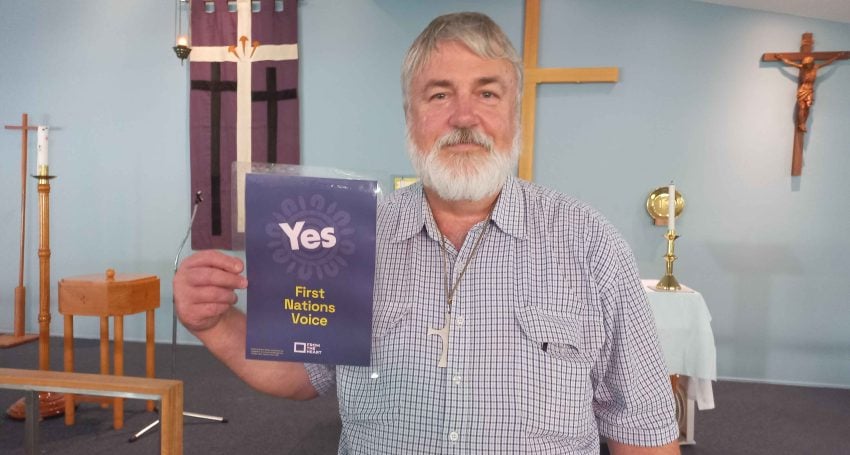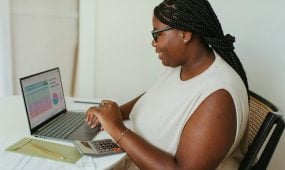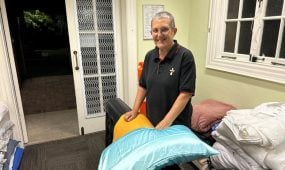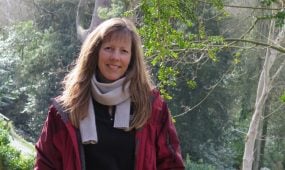Why I am voting “yes” in the referendum: The Ven. Geoff Hoyte
Justice & Advocacy
“I am campaigning for the ‘yes’ vote in this year’s referendum because I now have grandchildren. They won’t understand what it is all about when we vote this year, just like I didn’t understand what the 1967 referendum was about when I was five. But I want to be able to tell them about it later and that I tried to be part of making their country fairer,” says The Ven. Geoff Hoyte, as Close the Gap Day approaches on 16 March

Story Timeline
Why I am voting “yes” in the referendum
- Why I support constitutional recognition through an Aboriginal and Torres Strait Islander Voice to Parliament: Aunty Dr Rose Elu
- Why I am voting “yes” in the referendum: Sue Cooke
- Why I am voting “yes” in the referendum: Phyllis Marsh
- Why I am voting “yes” in the referendum: Bishop Daniel Abot
- Why I am voting “yes” in the referendum: Adrian Malone
- Why I am voting “yes” in the referendum: The Rev’d Cameron Freese
- Why I am voting “yes” in the referendum: The Rev’d Rick Gummow
- Why I am voting “yes” in the referendum: Uncle Milton Walit
- Why I am voting “yes” in the referendum: Marilyn Wright
- Why I am voting “yes” in the referendum: Barry Kuskopf
- Why I am voting “yes” in the referendum: Aiden Wu
- Why I am voting “yes” in the referendum: Reg Dean
- Why I am voting “yes” in the referendum: Jill Rylatt
I was five years old when Australian voters decided to count Aboriginal and Torres Strait Islanders peoples in the Australian census through the successful 1967 referendum. I didn’t know much about it at the time – I was just five years old – but I grew up knowing it had happened and that it was important. As a child I understood that the 1967 referendum somehow changed things.
When I got a bit older I started to notice that some things were better and fairer, but not everything. There were not many First Nations people in the western suburb I grew up in. My parish brought an Elder to talk to the young adults group and she talked about poverty, deaths in custody, stolen wages and what we now call “the health and life expectancy gap”. I have responded to some of this in my ministry and I still listen to that Elder.
Advertisement
Recently someone asked me who was the first Aboriginal and Torres Strait Islander person I met. I remember a kid called Peter*. He was the same age as my brother, went to a local school and was the only Aboriginal kid in the suburb. He lived with a local non-Indigenous family. Looking back now, I think he was one of the many “stolen generation” children, but we didn’t call it that back then or think about what it was like for him.
I am going to vote “yes” to the Voice for the sake of that kid, wherever he is now. And because of “the gap”, and the disproportionate number of deaths in custody…If First Nations people had been properly listened to back then, we would be a different country now.
I am campaigning for the “yes” vote in this year’s referendum because I now have grandchildren. They won’t understand what it is all about when we vote this year, just like I didn’t understand what the 1967 referendum was about when I was five. But I want to be able to tell them about it later and that I tried to be part of making their country fairer.
Advertisement
*Name changed to protect his identity.
Editor’s note: The Anglican Church Southern Queensland supports constitutional recognition through an Aboriginal and Torres Strait Islander Voice to Parliament. For campaign resources and more information, please visit the YES23 website.
Editor’s note 15/03/2023: The ACSQ supports the Anglican Board of Mission’s 2017 call for “a Constitutionally Entrenched First Nations Voice”. The ACSQ also supports the Anglican Church of Australia’s Joint Affirmation of Faith and Justice with First Nations Peoples (carried by affirmation at General Synod, Oct 2007), and seeks practical ways to do so, including our association with Reconciliation Australia and the prescribed process of Reconciliation Action Plans.
Editor’s note: 21/07/2023: This anglican focus feature, written by The Ven. Geoff Hoyte, The Rev’d Michael Stalley and The Rev’d Rick Gummow, provides a timeline showing how the ACSQ came to its position on recognising Aboriginal and Torres Strait Islander peoples in the Constitution through a Voice to Parliament.





